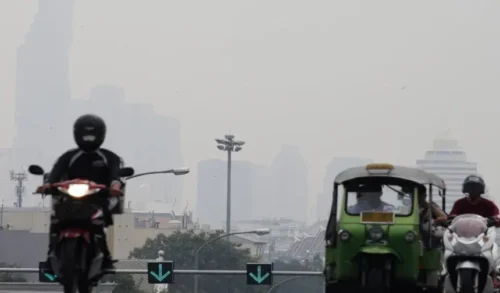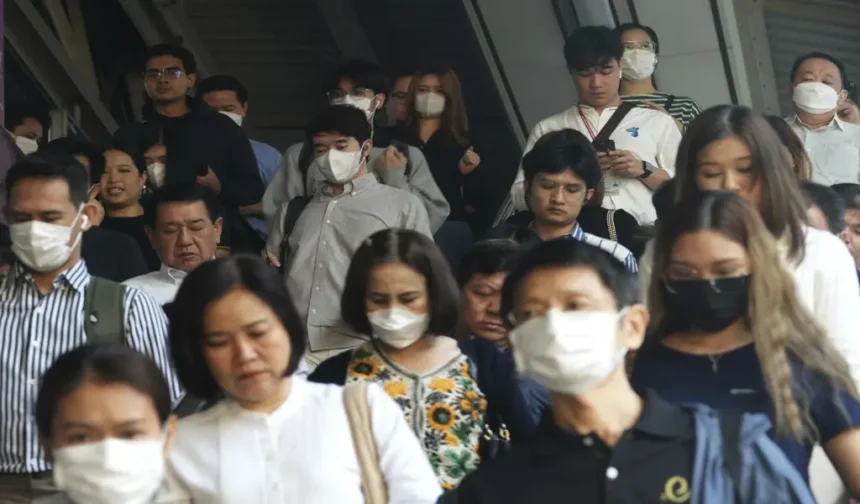Thai authorities’ latest strategy for addressing Bangkok’s exorbitant air pollution involves offering free public transportation for a week beginning Saturday. This initiative has closed numerous schools and relocated workers.
The travel concession allows passengers to use buses and elevated or underground electric trains for free throughout the capital. The government expects this initiative will reduce the number of private vehicles on the roads, helping to alleviate a major contributor to rising pollution levels.
On Friday, Paetongtarn Shinawatra, the Prime Minister of Thailand, shared a statement on her Facebook page, highlighting her serious concern. She emphasized that her government is fully committed to addressing the issue with immediate and long-term solutions.
Impact of Air Pollution on Public Health in Bangkok
Burning forests and agricultural debris significantly contribute to air pollution, which has affected Thailand’s northern region for many years. Additionally, Bangkok has faced extended periods of heightened pollution in recent years, especially during the milder months.

These tiny particles can deeply infiltrate the lungs and then migrate throughout the body, leading to immediate bronchial problems and serious long-term health complications.
Pollution from automobiles, factories, and construction sites is widely criticized.
On Saturday, IQAir, a monitoring service based in Switzerland, ranked Bangkok as the 14th most polluted city worldwide. The air quality was deemed marginally unhealthy for everyone. Earlier that week, it had been listed among the top 10 polluted cities globally.
The Air Quality Information Centre of the Bangkok Metropolitan Administration (BMA) reported that on Thursday morning, the air quality in all areas of the Bangkok metropolitan area was below the safety standard.
For the fourth consecutive day, the city’s average PM2.5 levels were 71 micrograms per cubic meter (mcg) on Thursday, considerably higher than the country’s standard of 37.5 mcg for a three-hour average (5 a.m. to 7 a.m.).
PM2.5 is a collection of dust particles that are 2.5 micrometres in diameter or smaller and have been associated with chronic conditions such as respiratory issues and heart disease when exposed for an extended period.
Burning crop residues, emissions from factories and traffic, and forest fires are key contributors to PM2.5.

Salman Ahmad is known for his significant contributions to esteemed publications like the Times of India and the Express Tribune. Salman has carved a niche as a freelance journalist, combining thorough research with engaging reporting.














